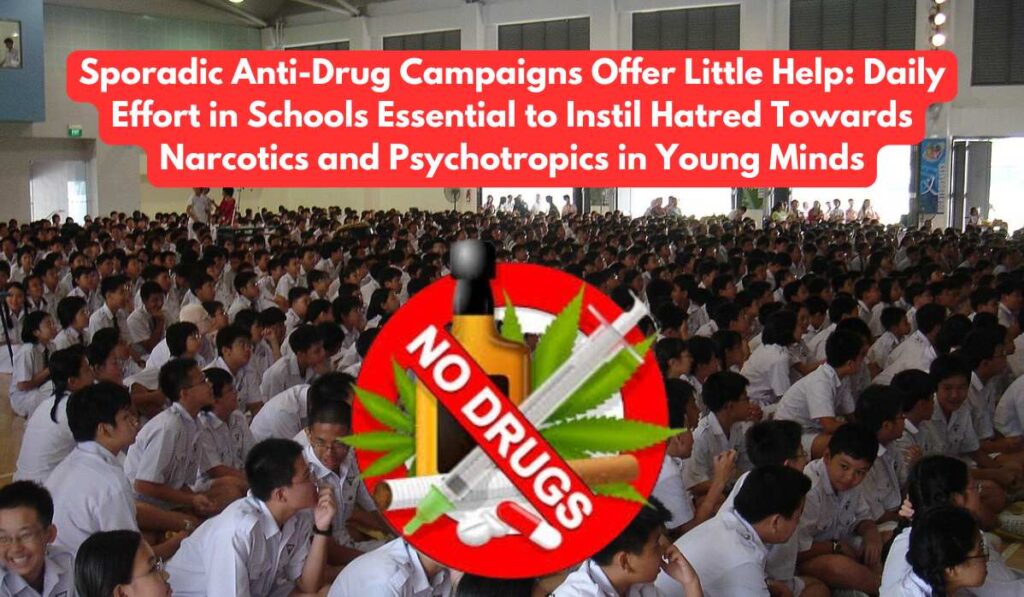Tarun Karthick
Port Blair, 09 September 2024
The growing menace of narcotics and psychotropic substances is rapidly infiltrating even the remote Union Territory of the Andaman and Nicobar Islands, raising alarms across the region. The islands, despite their isolated location, find themselves perilously close to a major maritime drug trade route that originates in Myanmar and snakes through Southeast Asia, reaching countries like Malaysia, Singapore, and Indonesia.
The infamous “Golden Triangle”—where Myanmar, Laos, and Thailand intersect—has long been a hub for the production of synthetic drugs, especially methamphetamine and, more recently, ketamine. In 2023, Myanmar overtook Afghanistan as the world’s largest producer of opium after the Taliban banned poppy cultivation. The proximity of the Andaman and Nicobar Islands to this region places it at significant risk, and the consequences are becoming increasingly evident.
In recent years, the Union Territory has witnessed a surge in the use of narcotics and psychotropic substances. While cannabis (ganja) and the occasional use of charas have been relatively common, more dangerous drugs have begun washing ashore on the islands, a stark reminder of the larger crisis looming nearby.
Since 2019, the authorities have seized substantial quantities of drugs each year, yet the problem persists, suggesting that more needs to be done beyond enforcement. One crucial avenue for combating this issue lies in the education system, particularly in shaping young minds to reject these harmful substances.
The battle against drugs must start at the primary school level, where consistent and daily efforts are required to instil a deep-seated aversion to narcotics and psychotropics. The idea is simple yet powerful: integrate anti-drug messages into daily school assemblies, where children can be exposed to stories, skits, posters, banners and documentaries that highlight the dangers of drug use, as well as the risks associated with alcohol and tobacco use.
By adopting such a methodology, the education system can play a pivotal role in safeguarding future generations from the escalating drug menace. Narratives that emphasise the devastating effects of drugs, alcohol, and tobacco—delivered consistently from a young age—can help quash the curiosity that often leads to experimentation. Additionally, these efforts can dismantle the glamorisation of substance abuse perpetuated by the entertainment industry.
In conclusion, while sporadic anti-drug campaigns have their place, they are insufficient to address the growing crisis. The need of the hour is a sustained, daily effort within schools to build a culture of rejection toward narcotics and psychotropics. Only then can the Andaman and Nicobar Islands hope to shield their youth from the destructive path of drug abuse.







